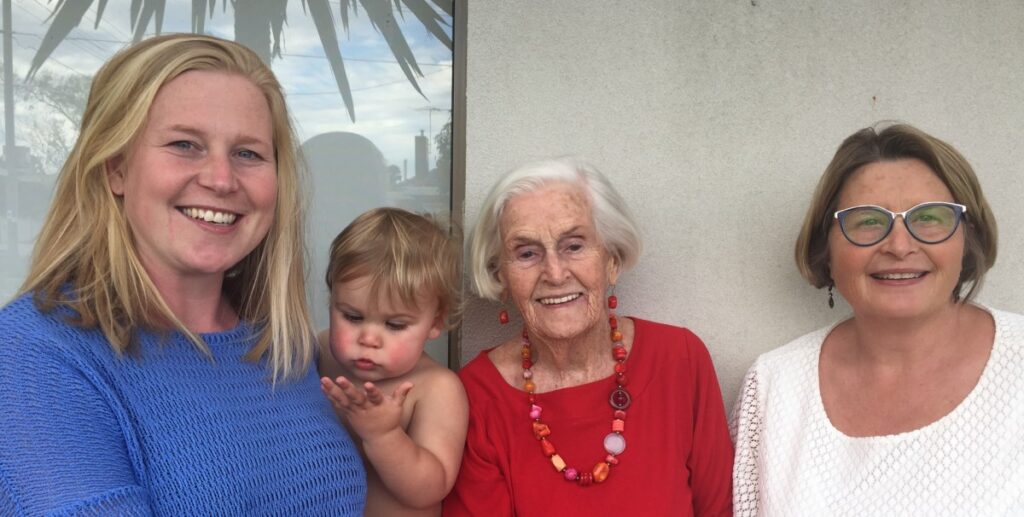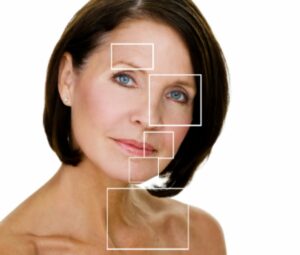Is there more to them than the fact you are older?
As with any other organ in our body, the physiological structures and functions of the skin continuously decline with increasing age. Fine lines, wrinkles, enlarged pores, lack of moisture and pigmentation are all signs that we associate with the skin ageing. Wouldn’t it be nice if we could slow down some of these, if not all (especially wrinkles!)?
Well, to a degree we can! First things first though, is having an understanding of the way our skin functions.
There are both internal and external factors that contribute to our skin ageing. These factors can be divided into three different categories: biological, environmental and mechanical ageing.

Biological Ageing
The first of these categories is biological ageing. This is the result of genetic changes that are naturally occurring throughout the whole body, not just in our skin. Look at your parents’ skin and you are likely to see yourself in the future!
During your life, from around age 25, skin cell function begins to slow, increasing the rate as the years pass. It is deep down that the changes begin, so initially we don’t notice anything. However, with all the complexities of the multitude of different cells being affected one day you will look in the mirror and see your first wrinkles!
Deep down changes:
- Poor communication from messenger molecules
- Hormones, which aren’t able to influence the skin as they should
- Cell walls, which are not able to retain water
- Collagen and elastin fibres being broken down
- An increase in inflammation, impairing the immunity of the cells
BUT it’s not all bad news!! We are now beginning to understand the effect that free radicals (unstable molecules) have on certain structures within our skin. Proteins, lipids and the DNA within our cells are all damaged by these, which in turn can accelerate the natural ageing process.
What causes us to have free radicals? They are part of the natural ageing process, however we can have more or less depending on a few life choices we make.
Thankfully, antioxidants can neutralise free radicals in the skin. This means that a diet full of antioxidant-rich fruits and vegetables, nutritional supplements and the addition of topical application of nutrients can help to slow and decrease the damage happening constantly within the skin. Easy!
Environmental Ageing
The second category is related to external factors known as environmental stress. We are constantly exposed to environmental factors, such as UV radiation, weather extremes, pollution and smoke, all of which increase the free radical damage in the skin.
This limits the ability of our cells to function at their optimum level with years of accumulated stress to these cells contributing to having skin that is older than our biological clock says it should be. This is known as premature ageing. We can help protect our skin from these stressors simply by limiting the time spent in the sun, always using a sun block and being smart about our lifestyle choices.
UV protection is THE most important factor in reducing the rate of premature ageing.
Another aspect of environmental stress that contributes to premature ageing is dehydration/dryness. This directly impairs your skin, increasing inflammation, decreasing cellular function and decreasing the skin’s immunity. It is the most common complaint of women over 40 that we see in-clinic.
Dehydration is due to loss of moisture levels within the skin. Healthy skin is able to maintain its moisture levels due to an intact moisture barrier on the surface of the skin. Certain lipids, such as ceramides and fatty acids, hold this barrier together, but can be broken down by external stressors leading to an increase in trans epidermal water loss, which is what you feel as dehydration/dryness. This can be exacerbated by excessive exposure to pollution, harsh weather conditions, heating and air-conditioning, as well as improper skin care, sun damage, hormonal changes and poor lifestyle choices. In order to affect change in your skin the issue of dehydration must be addressed first.
Mechanical Ageing
The third category is mechanical ageing. This is related to wrinkle-creating behaviours, such as muscle movements that are used repeatedly, day after day, creating lines and wrinkles over a period of time. In other words, don’t smile. Just kidding!!
There are some facial movements that can’t be avoided, but there are some that can. Squinting, resting your chin or cheek in your hand, weight fluctuation, sleeping on your stomach and pursing the lips when drinking through a straw or smoking a cigarette are all things that can be avoided to reduce the impact of mechanical ageing. Sounds easy, right?
Ageing is a natural process that is inevitable. One of the first places that we notice ageing is our skin. Some of us are blessed with good genes and, luckily, our skin ages well. Others aren’t as blessed in the gene department and need a little bit of extra love!
At The Skin Care Clinic, we want to arm you with the right knowledge, products and treatments to help your skin age as gracefully as possible. We believe in taking care of your skin inside and out.
If you’d like personalised advice on what skincare products is best for you and your man’s skin book now for your skin advisor consultant:
Book Your Skin Advisor Consultation.
Still not sure?
Fill in the Online Skin Consultation and Gaye, our registered nurse will happily help you to choose the right treatments and products for your skin type or concern.




Leave a Reply